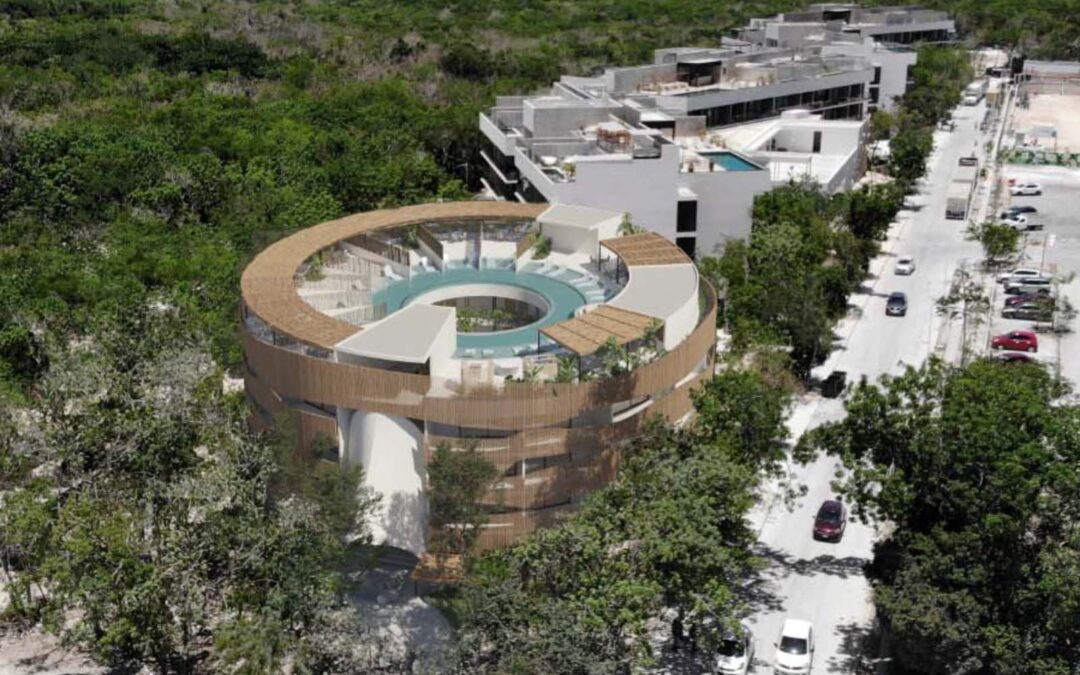Pre-construction or pre-sales investments represent an attractive opportunity in real estate, offering potential capital gains, flexible payment structures, and the chance to own property in high-demand areas. However, myths surrounding pre-sales often create hesitation among investors. Many perceive these investments as overly risky or complicated, deterring even seasoned investors from exploring their potential. This article seeks to challenge and debunk the most common misconceptions about pre-sales, providing readers with the clarity and knowledge needed to evaluate this unique investment opportunity effectively.
Myth 1: Pre-Sales Are Too Risky
Understanding the Risk Perception
The belief that pre-sales are “too risky” often stems from fears about market volatility, the uncertainty of construction timelines, and potential issues with developers. However, the risks associated with pre-sales can be managed effectively through a systematic approach. The first step is to research the developer’s track record. For example, a developer with multiple completed projects and strong customer feedback is more likely to deliver on time and meet quality expectations.
Additionally, many jurisdictions have regulations requiring developers to secure significant pre-sales commitments or escrow funds to ensure financial viability before breaking ground. Buyers can further mitigate risk by carefully reviewing the contract terms, such as refund clauses and deposit protections, which shield their investment in case of project failure. These strategies make pre-sales a calculated risk rather than an unpredictable gamble.
- Research developers with a proven history of successful projects.
- Check for government or legal protections, such as escrow accounts.
- Ensure clear contractual terms regarding delays or cancellations.
By approaching pre-sales with the right due diligence, investors can mitigate risks while unlocking the benefits of early property acquisition.
Myth 2: Only Suitable for Experienced Investors
Breaking Down the Learning Curve
A pervasive myth is that pre-sales are only suitable for experienced real estate investors. This notion overlooks the simplicity of the process and the support available to first-time buyers. Developers often provide extensive resources, including detailed brochures, model floor plans, and guided tours of showroom units. These tools make it easier for new investors to visualize the final product and make informed decisions.
Additionally, pre-sales usually require staggered payment structures, allowing buyers to pay deposits in phases instead of a lump sum. This flexibility is particularly appealing to first-time investors with limited capital. By working with knowledgeable real estate agents and legal advisors, even beginners can navigate the process with confidence. For instance, platforms offering educational webinars and financial planning tips have made pre-sales more accessible than ever.
Ultimately, pre-sales are not the exclusive domain of seasoned investors. With adequate preparation and expert guidance, anyone can succeed in this market.
Myth 3: Pre-Sales Are Overpriced
Comparing Costs and Value
The perception that pre-sales are overpriced is a common misconception fueled by misunderstandings about the pricing structure. Pre-sales typically offer “developer pricing,” which means properties are sold at below-market rates to incentivize early buyers. This pricing strategy benefits investors who purchase during the initial phases, as they secure units at a lower cost than what they would be worth upon completion.
For example, in rapidly growing metropolitan areas, pre-sale properties can appreciate significantly by the time they are move-in ready. Inflation, rising construction costs, and increasing demand often push the value of completed units higher than their pre-sale price. Moreover, buyers can lock in today’s prices while benefitting from tomorrow’s market conditions, effectively hedging against inflation.
Far from being overpriced, pre-sales represent a cost-effective way to invest in real estate, especially in high-demand locations or during early project phases.
Myth 4: Delays Always Lead to Losses
Evaluating the Impact of Delays
While project delays are an occasional reality in the construction industry, they do not necessarily result in financial losses. In fact, market appreciation during the delay period can enhance the final value of the property. For example, in cities experiencing rapid growth, a one-year delay may coincide with a 10–15% increase in property values, offsetting any inconvenience caused by the wait.
Contracts for pre-sale properties often include clauses to protect buyers from undue financial burdens due to delays. These provisions may include extended timelines for deposit payments or compensation for significant delays. Additionally, reputable developers work diligently to minimize delays and keep buyers informed of progress.
Investors who stay informed and choose projects backed by reliable developers can often turn delays into opportunities for increased returns.
Myth 5: Resale Value Is Hard to Predict
Assessing Long-Term Market Viability
Some investors hesitate to purchase pre-sales because they believe resale values are unpredictable. However, this myth ignores the critical role of market research and economic trends. A property’s resale value depends on factors such as location, proximity to amenities, and overall market demand. By analyzing these elements, investors can make educated predictions about future appreciation.
For instance, properties located near upcoming transit lines, major business districts, or new schools are likely to experience significant appreciation. Developers often target areas with high growth potential, increasing the likelihood of favorable resale values for pre-sale properties.
Investors who prioritize research and choose properties in prime locations can effectively predict and capitalize on long-term market trends.
Case Study: Successful Pre-Sales Investment in Urban Condos
Jane Doe, a software engineer from Toronto, ventured into pre-sales for the first time in 2020. She purchased a one-bedroom condo for $350,000 in a neighborhood slated for significant infrastructure improvements, including a new subway line and a shopping mall. Despite a six-month delay in construction, the property’s value had appreciated to $450,000 by 2023 due to rising demand in the area.
Jane’s success was the result of careful planning:
- She chose a developer with an excellent track record for quality and timely delivery.
- She researched market trends, ensuring that the neighborhood was poised for growth.
- She stayed updated on project developments and maintained communication with the sales team.
This example demonstrates how strategic decision-making can turn a pre-sale investment into a lucrative venture, even for a first-time investor.
Conclusion
The myths surrounding pre-sales investments are often rooted in misunderstandings and a lack of proper information. By debunking these myths, we have demonstrated that pre-sales are not overly risky or exclusively for experienced investors. When approached strategically—with thorough research, legal review, and professional guidance—pre-sales can offer significant financial rewards. Whether you are looking for an entry point into real estate or seeking to diversify your portfolio, pre-sales are a viable and rewarding investment strategy worth considering.
FAQs
Are pre-sale properties cheaper than completed ones?
Yes, pre-sale properties are often sold at discounted rates to attract early buyers. These prices are typically lower than market value, offering substantial savings and potential for future appreciation.
What happens if a pre-sale project is canceled?
In most cases, buyers receive a full refund of their deposits if a project is canceled. It’s important to confirm this clause in the purchase agreement to ensure financial protection.
Can I sell my pre-sale unit before construction is complete?
Yes, many buyers assign or resell their contracts before completion. However, the terms and fees for assignments vary by developer and should be reviewed before purchase.
How can I ensure a pre-sale investment is safe?
Conduct thorough research on the developer, review the legal agreement carefully, and work with experienced real estate agents and legal professionals to safeguard your investment.
Do pre-sales offer better returns than resale properties?
Pre-sales often provide better returns due to early-buyer discounts and appreciation during the construction period. However, this depends on factors such as location, market conditions, and timing.


























































